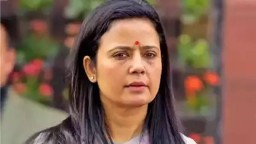Latest News
Privilege

The famous novel by Charles Dickens about the French Revolution begins with a striking scene that explains why an insurgency had to occur in 18th-century France. In the crowded Parisian lanes where children are playing, an aristocrat drives his carriage drawn by four horses. A child is murdered. The carriage comes to a sudden stop. Its aristocratic occupant looks out casually and asks why the rabble can’t look after their children, before tossing a coin at the dead child’s father. This scene is re-imagined in 21st-century India, when another aristocrat, this time a popular film star, drives his plush limousine onto a crowded Mumbai sidewalk, killing a homeless resident of the great metropolis. This time, he did not even throw a coin. He was a superstar beyond reproach.
Privilege is more of a mentality than a notion. It has a basic definition—unearned advantage, most frequently due to wealth— but it suggests much more. The concept arose in academics and progressive movements, but it is now increasingly used for cultural criticism and politics.
Indians are no strangers to the exploitation of privilege. Such situations are so prevalent that we accept them as the price for our status quo. When Liberals discuss privilege, they presume it does not apply to them. That it would only apply to the super-rich and the exceptionally rich. Is it only the ministers, celebrities, and factory owners, the corporate behemoths who exploit their privilege?
Consider the average city dweller. Does he consider himself fortunate? Men are leaders, while women are bossy. Men are capable; women are lovely. Boys will be boys, and women will have to learn to be women. Men are never promoted because of their sex; women climb the ladder as they sleep their way to the top. Men may easily choose between family and career, or both, and be lauded. Women cannot, without having their capabilities questioned. Do urban men recognise it? No.
Seeing outside your privilege is difficult, if not impossible. A fellow leftist mocked me and told me that a group of affluent young boys cannot comprehend the struggles of the average Indian person. It is embarrassing. We would oppose it because we believe it undermines our efforts to understand and help the marginalised. Conservatives would despise it as they would rather maintain their status quo. Yet it stands true; a privileged person can never truly understand the struggles of the marginalised.
The Savarnas will never truly comprehend or understand the sufferings of the Dalit. If a privileged urban dweller like me can witness the oppression of caste, a Chamar definitely can. Yet many claim that caste is dead in the cities, or even in the entire country. No matter how awake we want to be, we all have entitlement that we are willing to see and entitlement that we can afford to ignore. I am not affected by homophobic remarks hence I can afford to remain mute. Caste might be dead for some, and a horrific reality for others. For many, it might be religion, gender, sexuality, or disabilities.
Peggy McIntosh writes in her essay- White Privilege: Unpacking the Invisible Knapsack, “I think whites are carefully taught not to recognise white privilege, as males are taught not to recognise male privilege. So I have begun in an untutored way to ask what it is like to have white privilege. I have come to see white privilege as an invisible package of unearned assets that I can count on cashing in each day, but about which I was ‘meant’ to remain oblivious.” We can keep patting ourselves on the back for our efforts, whatever it is that we invest. After all, we’re all guilty of fostering our own unique sets of blind spots.
ADITYA RAJ MBBS Student at Jawaharlal Nehru Medical College, Director for World Youth Heart Federation






.png)
.png)
.png)
.png)
.png)



.jpg)

.jpg)


.png)

